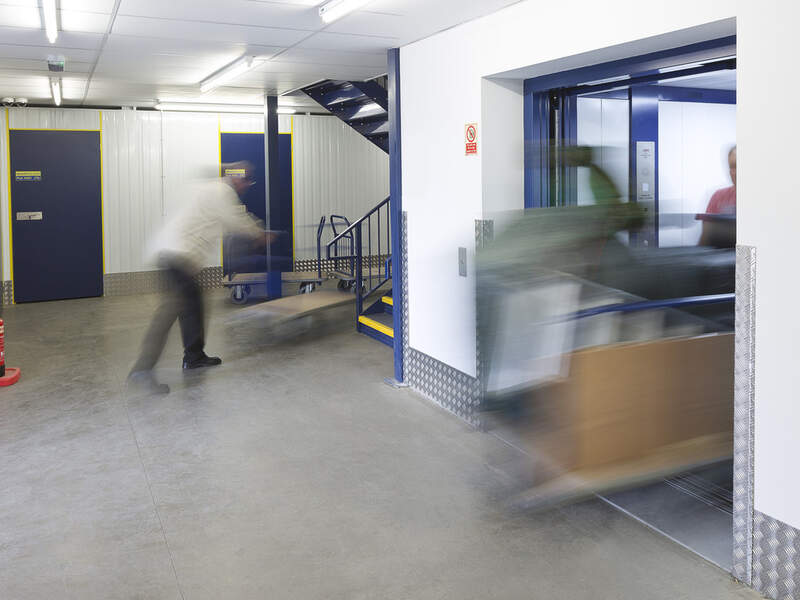The essential student guide to spending a year abroad

Many students take part in a year abroad. This may be part of their studies or an extra year tagged onto their university experience. But is it a good idea? Which is the best way to do it? How much does it cost and how do you go about planning it?
We decided to look into the year abroad to find out more. Read on to see what it’s all about and decide if it’s for you.
What is a year abroad?
A year abroad is exactly what it sounds like – an academic year spent in a foreign country. It can be an enriching experience that can help shape your future. The good news is, it’s open to most students, no matter what you’re studying. In fact, the options are vast and varied, so you could spend a year in all kinds of different locations. Which will you choose?
What are the different kinds of year abroad?
If you’re a student on a language-based course or thinking of embarking on one, it will probably include a year abroad. In this instance, you’ll have different options available to you ahead of your year abroad. These can include where you want to (in your chosen language’s geographical area). It could also include how you spend your year abroad. For example, where you wish to study in a foreign uni or teach English as an assistant in a school or college.
However, a year abroad isn’t just for language students. Programmes like ERASMUS have long been offering this option to students on all kinds of courses. So, you can still get in on the action if languages aren’t your thing.
Bear in mind the fact things may change once Britain leaves the EU. ERASMUS, for example, won’t be available after 2020. But fear not, there will still be year abroad options for UK students.
In actual fact, there are many ways you can spend a year abroad, and various options on how you spend it. You may study at a foreign university, teach English to younger pupils in a school abroad or work in industry.
You can also work or study abroad for just a semester. So, if you don’t want to commit to a full year, look at shorter-term options on offer.
Whichever option you choose, make sure you have researched all avenues and chosen the right path for you.
What are the benefits of a year abroad?
Students thinking about a year abroad should look at the benefits. We’ve put together a few below…
Experience different cultures
Seeing the world is a wonderful thing to do. Why not use a year abroad as a chance to discover new places and experiences? Travelling can teach us so much, and help us return with a fresh outlook. Spending a year abroad as part of your studies, or university experience, can be an amazing thing to do for yourself.
Improve language skills
If you choose a non-English speaking country, the chances are your year abroad will help you improve your language skills in the mother tongue.
Working or teaching in the target language is the best way to immerse yourself fully and give yourself a fast-track class in becoming fluent. So, if language improvement is your major motivator, opt for one of these routes.
However, studying abroad can also help you to practise your languages, too. You will be attending classes in the mother tongue, as well as using your languages in daily life. Just make sure you don’t surround yourself with fellow English speakers if your goal is to brush up your Spanish, as you may find it hasn’t done the trick!
Make new friends
New friendships are a fantastic part of spending a year abroad. Many people form lifelong connections with the people they meet while spending time in a different country. The shared experience can bring you together and create bonds which last way beyond the end of the academic year.
Whether you’re studying, teaching or working abroad there should be plenty of chance to meet people. Programmes dedicated to teaching and working bring together students from all over the world in the same situation. This enables them to form networks and share experiences, with regular meet-ups to stay in touch.
Meanwhile, if you choose to study abroad, you’ll meet students of all nationalities. Keep an open mind and you’ll make friends with people outside of your usual circles. Hopefully, the friends you make will help you to make the most of the experience!
Expand your horizons
Living in a different country doesn’t just introduce you to new experiences, people and cultures. In fact, it can help you to gain a host of other new skills which will come in handy for the rest of your life.
Spending a year abroad will help you to grow as a person, mature, gain independence and develop a greater sense of self. Taking yourself outside of your comfort zone by leaving uni behind can have an incredible impact on you as a person long-term.
Help you get your dream job
The amazing experiences and skills gained during your year abroad can help you later in life, when starting your career.
Employers view a year abroad as a positive, as it tells them a graduate has experienced life outside of uni. This could help you to land your dream job in no time!
What are the downsides of a year abroad?
A year abroad can be amazing. But there can be a few things to bear in mind before you jet off, to make sure it’s the right decision for you.
Homesickness
Spending a year abroad is a huge step for a student who may have only just got used to life away from home. And while it can be the best thing you’ve ever done, it can also be hard.
Long periods away from friends and family take their toll (and thanks to Facebook, you’ll still see everything going on without you).
If you can overcome the homesickness, spending a year abroad can be an incredible, character-building experience. It may feel strange to think you’ll rely on friends you haven’t met yet. However, you may well find the situation helps you form deep friendships which help you through the experience.
Communication
Not brushed up on your language skills? You may be in for a shock.
Many large European cities are full of willing English speakers. However, smaller towns and rural areas won’t be the same. You will be expected to talk the language!
However, most people on a year abroad see this as the fantastic opportunity it is to improve their language skills.
And you’ll hopefully find that most people appreciate your efforts, so will help you to make yourself understood if you are struggling. To be on the safe side, don’t wing it – do your homework and come prepared.
Safety
We don’t want to fill your head with horror stories, but safety should always be your priority when you’re travelling – especially in unfamiliar surroundings.
Do your research beforehand about the safest areas, and make sure you don’t travel with too many valuables.
Check your insurance covers everything, and take as many precautions as you can to avoid having items taken from you. Investing in items like an anti-theft backpack could be a smart place to start.
The cost of a year abroad
Unfortunately, a year abroad won’t come cheap, as there are various financial factors to take into consideration. However, there is plenty of support available for students who choose to spend a year abroad – and a little careful planning can go a long way.
Check out the infographic below from Sainsbury’s Bank to find out all you need to know about the cost of spending a year abroad.

The boring things to consider
Jetting off on a year abroad is undoubtedly an incredibly exciting prospect. Just make sure you sort out all the practicalities before you leave, so you can enjoy yourself without any worries. We’ve rounded up a few things to remember before you head off on your adventure.
Plan your budget
Sticking to a budget could be easier than you think with a little careful planning. Work out how much you have to spend based on your student loan, any earnings you will have over there, funds from parents etc and research how far you can make this go. Join Facebook groups and forums about life in your destination to help you glean handy tips on living like a local. Hopefully, this will help you plan your finances, get all the insider tips and make some friends, too!
Copy your travel documents
Better still, email them to yourself and a friend in case the worst happens! While it’s easy to keep track of your passport on holiday, the same can’t be said when you’re settled into your new accommodation and daily life. Keep everything in a safe place, but be prepared for the worst!
Research jobs
If your budget is tight, why not look into ways of earning money during your year abroad? There are so many options – bar work, teaching English at night school, tutoring, delivering Uber Eats – look at your options and see what works for you in your area.
Store your wordly goods
One practical aspect of a year abroad is wondering where to put all your stuff while you’re away. Moving from one student house to another every academic year means most students won’t have the space to stash everything away until the following year. So, it boils down to one of two options.
Firstly, you can try sweet talking your parents into helping you transport everything back home – then back again when you need it (good luck with that one).
Or, you can find some affordable student storage space close to your uni house or flat to get it packed away until you need it. Many storage centres will offer a collection service, which can come in handy if you don’t have transport (ours is even free 😎). And it saves you the headache of owing your mum and dad a favour!
Take some cash
While it’s not smart to travel with bundles of Euros, it will be really handy if you have a little cash available as soon as you land. If you have problems with your UK debit or credit cards, you’ll be glad of some funds to grab a taxi, a bite to eat or a travel pass.
Pack light
Going away for such an extended trip, you’ll naturally want to take everything you own just in case you’ll need it at some point. But try to hold back and pack light, because you may end up bringing all the wrong things for the type of place you’re in. The best thing to do is leave room in your case to shop while you’re there, so you can work out what you actually need and blend in with the locals (this will help throw pickpockets in busy cities off the tourist scent too).
Enjoy yourself – and take it as it comes
The most important piece of advice we can offer students planning a year abroad is simply to enjoy it! It can be an incredible experience full of highs and lows. Don’t feel pressure if you don’t have the time of your life every single moment. You’re bound to have amazing times and a little homesickness too, so take it all as it comes and enjoy it as much as you can. Keep an open mind, travel as much as you can and try to say yes to new things – even if you’re scared!
If you’ve spent a year abroad, please share your tips and experiences with others on our social pages!











































































































































































































